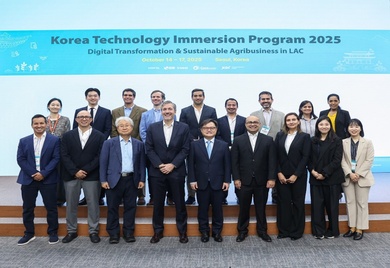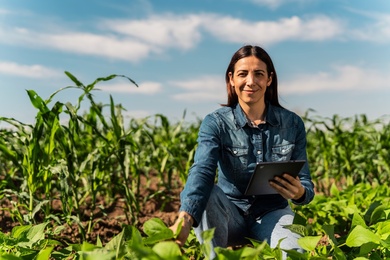How new technology can make business sustainable

[caption id="attachment_2279" align="alignleft" width="225"] New technology can make business sustainable[/caption]
New technology can make business sustainable[/caption]
Technologies such as the phone can continue to shape the world, especially Latin America and the Caribbean. Here are three examples how:
1. Thanks to Bell and the people who turned them into what they are now, telephones continue to lead us in new directions. Banks, schools, hospitals and agricultural companies use this technology in unique ways to increase productivity and include a broader market.
ECOM Agroindustrial uses Android applications for specialists in the field to gather information about small coffee producers. And producers have long relied on phones to stay abreast of crop and climate issues. ECOM also seeks to provide financing to producers through the mobile phone. These technological improvements not only benefit the consolidated companies but also small farmers.
2. Given a recent study called The Broadband Effect by IDB Group, we see that broadband is bringing much success to small and medium enterprises and intermediaries which implement interconnection models. Barared of Mexico, a company that serves the population at the base of the economic pyramid (BOP), is doubling its revenue from the acquisition of broadband services through a model of "direct-to-the-consumer." Other companies are experimenting with models of local agents and optimized internal processes.
The transmission capacity of large-scale information and the possibility of live interaction allow the BOP to access information and infinite high quality goods and services. It makes companies more efficient, especially their ability to serve their poorest consumers.
3. In the green growth space, small and medium enterprises are increasingly embracing more technologies that allow them to be more energy efficient. Energy efficiency is not only important for inventors of new technologies, but also for those who adopt them. The latter are those that change how we think about energy and force new inventors to readjust.
In 2007, the IDB Group was at the forefront of energy audits for smaller manufacturing companies in Ecuador. One was La Vicunha. We provided them with financing for a hydroelectric turbine installed for self-sufficiency, an efficient condensation system and more modern engines.
As a result, the company doubled its production of renewable energy, decreased power consumption and reduced carbon emissions by 50 percent. This was achieved with an investment of only US$ 3 million to be amortized in less than 3 years. The company has won international competitiveness, increasing sales by 60 percent. Monetizing the benefits and funding energy efficiency technologies is a void we at the IDB Group can fill.
Whether you are a scientist, an inventor, an intermediary or the end-user, we can all do our part to push technology in different directions. In our own way, let’s try to be like that first person in the nineteenth century who decided to pick up the phone, and instead of listening to music, called a friend.
Adapted from a post published on November 10, 2014.
¿TE GUSTA LO QUE ACABAS DE LEER?
Suscríbase a nuestra newsletter para mantenerse informado sobre las últimas noticias de BID Invest, publicaciones de blog, próximos eventos y para obtener más información sobre áreas específicas de interés.
Suscribirse



